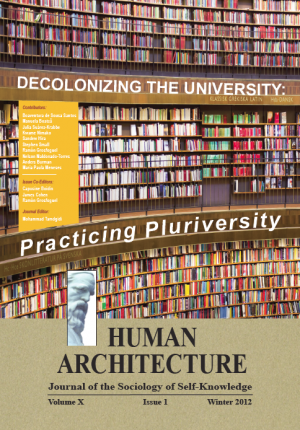Journal Article — Are We There Yet? The Tension Between Nativism and Humanism in Fanon’s Writings — by Luis Galanes Valldejuli
$15.00
In this article, the contemporary debate over the tension between “nativist” (nationalist, anti-colonial) and “humanist” (transnational) representations of identity in Fanon’s works is examined.
Description
Abstract
In this article, the contemporary debate over the tension between “nativist” (nationalist, anti-colonial) and “humanist” (transnational) representations of identity in Fanon’s works is examined. The author argues that such tension, as it appears in the form of contradictory statements and ambivalent enunciations in Fanon’s writings, provide not only a key to our understanding of Fanon, but is also useful in assessing contemporary critiques of nativism. The article concludes that if Fanon is still relevant today, it is because he forces us to ask whether nativist discourses can still be used “not as descriptions of how things are,” but instead as “instrumental” and “strategic” discourses that can serve to oppose neo-colonial relations in the contemporary world.
Recommended Citation
Valldejuli, Luis Galanes. 2007. “Are We There Yet? The Tension Between Nativism and Humanism in Fanon’s Writings.” Pp. 59-70 in Reflections on Fanon: The Violences of Colonialism and Racism, Inner and Global—Conversations with Frantz Fanon on the Meaning of Human Emancipation (Human Architecture: Journal of the Sociology of Self-Knowledge: Volume V, Special Issue, 2007.) Belmont, MA: Okcir Press (an imprint of Ahead Publishing House).
The various editions of Reflections on Fanon: The Violences of Colonialism and Racism, Inner and Global—Conversations with Frantz Fanon on the Meaning of Human Emancipation can be ordered from the Okcir Store and are also available for ordering from all major online bookstores worldwide (such as Amazon, Barnes&Noble, and others).
Read the Above Publication Online
To read the above publication online, you need to be logged in as an OKCIR Library member with a valid access. In that case just click on the large PDF icon below to access the publication. Make sure you refresh your browser page after logging in.








